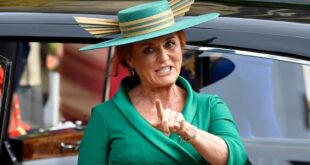Taoiseach Leo Varadkar has sought to reassure unionists that the constitutional position of Northern Ireland is unaffected by the new Brexit agreement, promising them that the status of the North will only change if a majority of people vote for it.
“The queen will still be the queen, the pound will still be the pound , people will still post letters in Royal Mail red letter boxes,” Mr Varadkar said in Brussels at the conclusion of the two-day summit of European leaders.
“Northern Ireland will still be part of the United Kingdom and because of the Good Friday [Belfast] Agreement. That is protected until such a time, should that time ever arise, when the majority of the people in Northern Ireland vote otherwise,” he said.
Mr Varadkar said that there were already differences between the North and the rest of the UK, which didn’t affect its constitutional position.
“It’s been the case for 100 years now that Northern Ireland has its own legal system, has a different education system, has lots of different laws, lots of different rules from the rest of the UK,” he said.
“And that’s a reflection of devolution and autonomy and doesn’t change the constitutional position of Northern Ireland.”
Mr Varadkar also said many of the Government’s preparations for a no-deal Brexit would be stood down if the House of Commons votes to approve the new agreement tomorrow.
“If the House of Commons does vote yes on the indicative vote on Saturday, that will put us in a position to stand down no-deal preparations,” he said. “But we won’t stop them entirely. Because there is always an outside chance of something going wrong over the next couple of weeks. Because as I understand it, what’s required as well is legislation, the withdrawal act, as well as an indicative vote.”
The Government would “not abandon them completely,” he said. “And also bear in mind that some of the preparations and some of the changes we have made for no-deal may be necessary into the future, depending on what sort of arrangements we have with the UK when it comes to the free-trade agreement, and how free will that trade be. So some of the infrastructure that we put into Dublin Port at considerable expense and some of the infrastructure that we put into Rosslare Port at no so much expense may still be necessary in a few years time.”
In response, deputy leader of the DUP Nigel Dodds said: “If Leo Varadkar thinks unionism is just about red post boxes then he is either very ill informed or else just wishes to be offensive.
“Of course we will still use sterling and her majesty the queen will be our head of state, but a new trade barrier will have been erected between Northern Ireland and the rest of the United Kingdom without the consent of anyone who lives here.
Mr Dodds said trade borders run to the core of any nation and customs are collected at the border. He added that Northern Ireland is an integral part of the UK and “therefore there should be unfettered trade within the boundaries of the United Kingdom.
“More bureaucracy for trade between Great Britain and Northern Ireland will potentially increase costs for consumers and ultimately reduce choice for consumers also.”
Indicative vote
Meanwhile, British prime minister Boris Johnson has returned to London ahead of the indicative vote in the House of Commons on Saturday that will decide the fate of his freshly brokered Brexit deal with the EU.
Mr Johnson has a fight on his hands to secure support for the deal after the North’s Democratic Unionist Party said its MPs would not be supporting the deal. Mr Johnson urged parliamentarians to “come together and get this thing done”, but it remains unclear if he has the numbers to get the deal over the line when parliamentarians vote at the historic weekend sitting.
DUP MPs dug in over their objection to Mr Johnson’s Brexit deal and said they will push for a general election in a bid to help secure “more robust” divorce terms.
The Commons vote could come down to the tightest of margins but the DUP, which has propped up the minority Conservative Party government, is refusing to get behind the new withdrawal agreement over concerns it would amount to “siphoning off” Northern Ireland from the rest of the UK.
It comes as Mr Johnson is expected to re-ignite his charm offensive towards hardliners on his own benches, with members of the European Research Group (ERG) holding further meetings in Number 10 on Friday.

Mr Johnson returned to London following dinner on Thursday evening in Brussels, skipping day two of the summit as he attempts to shore up support.
The Tory leader has urged parliamentarians to “come together and get this thing done”. But DUP MP Sammy Wilson said his party would continue to hold firm and will vote against the Brexit deal on offer.
The party’s Brexit spokesman told BBC Radio 4’s Today programme: “I can give you absolute assurance we will not be voting for this deal when it comes before the Commons tomorrow.”
Mr Wilson suggested a trip to the polls could help Mr Johnson secure “more robust” terms with the EU, arguing that leaders in Brussels saw him as “vulnerable” in parliament without a majority.
“I believe, with a big majority, he can be more robust in his negotiations,” Mr Wilson added.
Foreign secretary Dominic Raab said the British government would continue to engage with the DUP to “give them the reassurances we can”.
Mr Raab said the UK and EU had settled upon a “reasonable approach” to solving the “undemocratic” nature of the backstop envisioned in Theresa May’s rejected deal. “It seems to me a simple majority of the Northern Ireland Assembly to take a decision to remain aligned to those limited rules necessary in order to guarantee no infrastructure at the Border, to guarantee seamless access to the EU single market, is a reasonable approach,” said the minister.
Very confident
Mr Johnson said he was returning to Westminster in a “very confident” mood following the EU27’s decision to give the terms thrashed out with the European Commission the green light.
The prime minister was boosted by the news that former Tories he sacked following their rebellion over a no-deal Brexit are considering voting for the proposals currently on the table during what is being dubbed “super Saturday”.
Sir Nicholas Soames MP told Newsnight he would vote in favour of the deal and that his other 20 colleagues who had the whip removed would “by and large vote for it”.

Attention has also turned to the Labour party’s own psychodrama and its troubles over the looming meaningful vote, with focus on what MPs in Leave voting seats will opt to do.
However, the party’s John McDonnell said there would be “consequences” for MPs in his party who voted for Mr Johnson’s Brexit deal, but would not say whether that included having the whip removed.
A total of 635 votes will be in play when the deal is debated, which means the government will need at least 320 votes to be certain of a majority.
If every Tory MP who is able to vote also backs the deal, this gives the Government 285 votes — well short of the number required.
The European Council on Thursday agreed unanimously to endorse the deal, which includes plans for a regulatory and customs border between Great Britain and Northern Ireland.
The agreement came at the end of a dramatic day that began with the DUP stating it could not support the deal. Less than four hours later, Mr Johnson announced that he had secured “a great new deal that takes back control” and European Commission president Jean-Claude Juncker welcomed the deal soon afterwards.
The deal leaves all but a fraction of the withdrawal agreement negotiated with Theresa May intact, with a new political declaration about the future relationship between Britain and the EU. The Northern Ireland backstop is replaced by a new arrangement under which the North will continue to follow EU regulations on goods.
Northern Ireland will leave the EU’s customs union with the rest of the United Kingdom but it will be treated administratively as if it is remaining within it. This means there will be no customs or regulatory border between North and South but some goods moving from Great Britain to Northern Ireland will be subject to checks.
Source link

